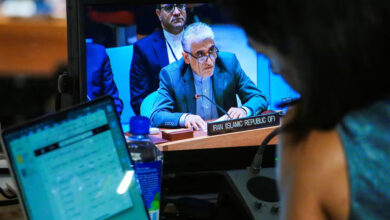The United Nations Security Council will need 12 years to be reformed due to the inflexibility of its permanent members towards the idea of adding new permanent members to the council, said Muhammad Shaaban, the UN Under-Secretary-General for General Assembly and Conference Management on Wednesday.
According to Shaaban, the Security Council’s permanent members do not want “to be crowded” by new members. In addition there are existing conflicts over council seats between individuals from the same continent, he said.
He explained that the Council’s five permanent members–China, France, Russian Federation, the United Kingdom and the United States–have all wielded their veto power against any decision to include new members.
He pointed out that the number of members with veto power has remained the same since any change involves the difficulty of amending the charter, which requires both the support of the P5 and of two-thirds of all UN Member States. The Security Council currently consists of the five permanent members who solely wield the power of veto and 10 non-permanent members.
The G4 nations (Brazil, Germany, India and Japan) have been aspiring for years to permanent membership in the Security Council and although there has been support from permanent members of the council for certain G4 members to join, but they haven't reached any collective agreement.
Shaaban, who is currently visiting Egypt, listed the UNs successes and failures since its establishment, noting that the organization’s activities are only representative of its member states. He pointed out that the UN succeeded in eliminating racial discrimination, but failed to eliminate developmental discrimination.
The UN has succeeded in keeping the peace in several regions of the world, but “was unable” to deal with certain hotbeds of conflict, such as Bosnia and Rwanda, said Shaaban.




